 ★★★★½
★★★★½
“Here be drag-ons…”
 D
D isney movies are not the usual place to find action heroines: their classic woman is a princess, who sits in a castle and waits for someone of appropriately-royal blood to come and rescue her from whatever evil fate (wicked stepmother, poisoned spinning wheel, etc.) that has befallen her.
isney movies are not the usual place to find action heroines: their classic woman is a princess, who sits in a castle and waits for someone of appropriately-royal blood to come and rescue her from whatever evil fate (wicked stepmother, poisoned spinning wheel, etc.) that has befallen her.
The first inklings of a change to this traditional attitude came in 1991 with Beauty and the Beast, where Belle was an independent-minded young lady who rejected the advances of the handsomely square-jawed hero, because he was an idiotic jerk. Unfortunately, the moral was somewhat diluted by the end when – and I trust I’m not spoiling this for anyone – the Beast turns into a rather convincing facsimile of said handsomely square-jawed hero. So, looks are everything, after all… Much more successful was their 1998 attempt, Mulan, recently released for the first time on DVD, which took a traditional Chinese legend about a girl who dresses as a man to join the army, and converted it into the traditional Disney animated feature format, complete with songs and amusing sidekick. Given the studio’s previous track record (hey, why bother paying writers to come up with new stories, when there’s public domain ones to rape?), qualms here are understandable. Perhaps most memorably, Disney gave Hans Christian Andersen’s The Little Mermaid a happy ending, though turning Quasimodo into a lovable Happy Meal probably comes close – that whirring sound you hear is Victor Hugo spinning in his grave.
And, yes, liberties were taken, though to be fair, you expect this in any screenplay – especially one whose story originally appeared in a poem written by an anonymous Chinese author around the 5th or 6th century AD. [The poem also appears on the DVD, but without any attribution or context; you’d be forgiven for thinking it was written by a Mousketeer] From here sprang a whole raft of tales, with different eras, locations or surnames, largely dependent on the author’s feelings, but having several common threads. The story takes place over more than a decade, and Mulan’s identity isn’t discovered until she has finally returned home and resumed her normal life.
 There’s also no threat of execution when her deception is found out – Chinese culture may perhaps actually have a more tolerant approach to such things, though this is admittedly going only by the likes of Peking Opera, and a good chunk of Brigitte Lin’s career. And, of course, both the romantic angle and amusing sidekick were modern additions. This contrasts sharply with one version of the original, which has the Emperor hearing of Mulan’s exploits, and demanding she becomes his concubine. Mulan commits suicide in preference to this fate, an ending that, for some reason, didn’t make it into the Disney adaptation…
There’s also no threat of execution when her deception is found out – Chinese culture may perhaps actually have a more tolerant approach to such things, though this is admittedly going only by the likes of Peking Opera, and a good chunk of Brigitte Lin’s career. And, of course, both the romantic angle and amusing sidekick were modern additions. This contrasts sharply with one version of the original, which has the Emperor hearing of Mulan’s exploits, and demanding she becomes his concubine. Mulan commits suicide in preference to this fate, an ending that, for some reason, didn’t make it into the Disney adaptation…
Perhaps the surprising thing is that there haven’t been more movie adaptations of the story – contrast the literally hundreds of movies based on Wong Fei-Hung. There have been a couple, most notably 1960’s The Lady General Hua Mu Lan, directed by Yue Fung, and starring Ling Buo as Mulan (real-life husband Jing Han played General Li). Before that was Maiden in Armor starring Nancy Chan, made in 1937, largely as propaganda to rally the Chinese against the Japanese. The most recent version was in 1999; Yang Pei-Pei’s 48 episode TV series starred Anita Yuen as Mulan [photo, right]. However, over the past couple of years, no less than three versions have been rattling around in development hell. The most eagerly anticipated one stars Michelle Yeoh as Mulan, with Chow Yun-Fat co-starring. The director is uncertain (Peter Pau and Christophe Gans are most often mentioned) and production still hasn’t started, even though it was announced back in July 2001; recent reports now have it scheduled to begin filming early next year.
Stanley Tong has also been working on The Legend of Mulan; the original plan was to shoot this in English, with Lucy Liu and The Rock as Mulan and the Hun general respectively, but this may have fallen through; with Tong now working on the next Jackie Chan film, this one seems to be on the back-burner. Finally, a Korean version, with either Jeon Ji Hyun (My Sassy Girl) or Zhang Zi-Yi, was scheduled, but not much has been heard about this lately. The Disney version, on the other hand, just came out on DVD for the first time – in part, I suspect, to act as marketing for the forthcoming, inevitable Mulan II. The trailer for the sequel is on the Mulan DVD, but Lady and the Tramp II, The Little Mermaid II, The Hunchback of Notre Dame II and Aladdin II should give you an idea of how wonderful Mulan II will be. [It’s going straight to video, of course, but it does at least have Ming-Na Wen. No Eddie Murphy though.]
 That’s a shame, because the original still has a great deal to offer. Unlike many Disney films, the songs don’t bring proceedings to a grinding halt and are notably absent from the second half of the film. Indeed, the transition is deliberately abrupt: a band of happy, singing warriors is stopped mid-verse when they come across a burnt-out village which the Huns have exterminated (right). It’s a simple, but highly effective moment, where silence says a lot more than any words. [At one point a song for Mulan about the tragedy of war was considered, but this was dropped, along with Mushu’s song, Keep ‘Em Guessing – both decisions which can only be applauded.]
That’s a shame, because the original still has a great deal to offer. Unlike many Disney films, the songs don’t bring proceedings to a grinding halt and are notably absent from the second half of the film. Indeed, the transition is deliberately abrupt: a band of happy, singing warriors is stopped mid-verse when they come across a burnt-out village which the Huns have exterminated (right). It’s a simple, but highly effective moment, where silence says a lot more than any words. [At one point a song for Mulan about the tragedy of war was considered, but this was dropped, along with Mushu’s song, Keep ‘Em Guessing – both decisions which can only be applauded.]
Obviously, in terms of action, it’s hamstrung by the G-certificate (though the British censors insisted on a headbutt being removed to get the equivalent ‘U’-rating), but allowing for this, it’s still got some exciting scenes, and the first encounter between Mulan and the Hun army is fabulous by any measure. It also avoids the pitfall of many a Disney film – making the villains more memorable than the main characters. [Everyone remembers Cruella DeVille from 101 Dalmatians; but can you name the hero?] Here, Shan-Yu is almost a caricature, but does what’s necessary quickly, allowing the other characters to be developed more completely, and compared to other Disney heroines, Mulan may be the most well-rounded human being.
Of course, Eddie Murphy comes close to stealing the show as demoted family guardian, Mushu. Unlike Shrek, where the competition for laughs with Mike Myers was painfully clear, Ming-Na Wen is content to be the straight “man”, and the film benefits as a result. Murphy’s accent is entirely anachronistic, naturally, but that’s half the fun – interestingly, the American DVD offers the option of a Mandarin soundtrack, which is a nice option. We did try it for a bit, but the Chinese Mushu just didn’t have the life and energy of Murphy, and we soon switched back. [HK singer CoCo Lee plays Mulan, while Jackie Chan is the voice of Shang in both this and the Cantonese versions] The tunes are perhaps not quite “classic” Disney, in the sense that they don’t stay in your brain for years after, to explode at the most inappropriate moments. They’re still fairly hummable though, and Jerry Goldsmith’s Eastern-tinged score compliments the similarly Oriental-flavoured animation well. The makers clearly did a lot of research, thought it does have to be said, the film does not exactly portray Chinese culture in a particularly good light; Mulan, the heroine, is shown as rebelling against it in almost every way. One reviewer describes its basic theme as, “a woman with western values overcoming the oppression of a backwards Chinese civilization.” Ouch.
 However, personally, I’d say the value of having a clearly non-Caucasian heroine (a first for any Disney film) outweighs relatively minor quibbles about subtext. It may be the last great hand-drawn animated feature from the studio which invented the genre, and all but defined it for sixty years, so I have absolutely no hesitation in recommending this as an empowering and highly entertaining tale for children – of any age, but especially those too young to read subtitles. There aren’t many action heroine films our entire family loves, but Mulan is definitely high on the list.
However, personally, I’d say the value of having a clearly non-Caucasian heroine (a first for any Disney film) outweighs relatively minor quibbles about subtext. It may be the last great hand-drawn animated feature from the studio which invented the genre, and all but defined it for sixty years, so I have absolutely no hesitation in recommending this as an empowering and highly entertaining tale for children – of any age, but especially those too young to read subtitles. There aren’t many action heroine films our entire family loves, but Mulan is definitely high on the list.
Dir: Tony Bancroft and Barry Cook
Star: Ming-na Wen, Eddie Murphy, B.D.Wong, Soon-Tek Oh
 This is an interesting contrast to Sunland Heat which took a woeful script and executed it briskly enough to work. Here, the story isn’t bad – Anna Rios, a Hispanic lawyer (with a special forces background!) goes back to her roots, after her brother is gunned-down, and uncovers a maze of murky deals. It’s the execution which is largely inept, “Kantz” providing further evidence that one-name directors suck at GWG films – see also Charlie’s Angels: Full Throttle (McQ), Catwoman (Pitof), Ecks vs. Sever (Kaos) and Tomb Raider 2 (Jandebont).
This is an interesting contrast to Sunland Heat which took a woeful script and executed it briskly enough to work. Here, the story isn’t bad – Anna Rios, a Hispanic lawyer (with a special forces background!) goes back to her roots, after her brother is gunned-down, and uncovers a maze of murky deals. It’s the execution which is largely inept, “Kantz” providing further evidence that one-name directors suck at GWG films – see also Charlie’s Angels: Full Throttle (McQ), Catwoman (Pitof), Ecks vs. Sever (Kaos) and Tomb Raider 2 (Jandebont).




 You’ve got to admire any film – particularly a TV movie – that provokes diverse reviews. This, then, not only “
You’ve got to admire any film – particularly a TV movie – that provokes diverse reviews. This, then, not only “ After civilization’s collapse, men have regressed to the level of Neanderthals, while women live in clans decided by their hair colour, with names like the FayWrays, Satanas and Tempests. Clothing is in short supply: lingerie, it would appear, is not, and nor are large, automatic weapons. Unsurprisingly, this leads perhaps to the finest opening five minutes in girls/guns cinema ever – “My name is Rachel, and I am a blonde. Blondes are extinct” – as our heavily-armed, suspender-and-stiletto clad heroines stagger round a post-apocalyptic landscape. This looks fabulous, and totally belies the fact that it cost $16,000 and was made in sixteen days.
After civilization’s collapse, men have regressed to the level of Neanderthals, while women live in clans decided by their hair colour, with names like the FayWrays, Satanas and Tempests. Clothing is in short supply: lingerie, it would appear, is not, and nor are large, automatic weapons. Unsurprisingly, this leads perhaps to the finest opening five minutes in girls/guns cinema ever – “My name is Rachel, and I am a blonde. Blondes are extinct” – as our heavily-armed, suspender-and-stiletto clad heroines stagger round a post-apocalyptic landscape. This looks fabulous, and totally belies the fact that it cost $16,000 and was made in sixteen days. Poor Alias. Shunted from its Sunday slot to make way for Desperate Housewives – which proved successful beyond SD-6’s wildest dreams – this season felt as if JJ Abrams was more devoted to his second child, Lost (again, the owner of bigger ratings). By the end of the season it was Sydney, Jack, and their associates who found themselves both lost and somewhat desperate in TV-land, despite much-improved viewing figures – largely a result of following Lost, which got about 30% more audience.
Poor Alias. Shunted from its Sunday slot to make way for Desperate Housewives – which proved successful beyond SD-6’s wildest dreams – this season felt as if JJ Abrams was more devoted to his second child, Lost (again, the owner of bigger ratings). By the end of the season it was Sydney, Jack, and their associates who found themselves both lost and somewhat desperate in TV-land, despite much-improved viewing figures – largely a result of following Lost, which got about 30% more audience. The daughter of Clint does her best in this police thriller but, despite one decent twist, and a couple of half-decent scenes, this collapses under the weight of too familiar a storyline and some rampant overacting. Inspector Billie Palmer (Eastwood) is assigned to catch a killer who has promised a victim a day for 20 days, and is living up to their promise. Events centre around a local deaf priest (Rhys-Davies), but she also must deal with a disgruntled suspect whom she shot, a traumatic incident in her past, and a suspiciously knowledgeable informant. Oh, and a laughably gratuitous sex scene that appears out of nowhere, 80 minutes in.
The daughter of Clint does her best in this police thriller but, despite one decent twist, and a couple of half-decent scenes, this collapses under the weight of too familiar a storyline and some rampant overacting. Inspector Billie Palmer (Eastwood) is assigned to catch a killer who has promised a victim a day for 20 days, and is living up to their promise. Events centre around a local deaf priest (Rhys-Davies), but she also must deal with a disgruntled suspect whom she shot, a traumatic incident in her past, and a suspiciously knowledgeable informant. Oh, and a laughably gratuitous sex scene that appears out of nowhere, 80 minutes in. The opening shot zooms in on Rodriguez with her head down; slowly, she raises her head, and stares into the camera with ferocious intensity. If this renders the rest of the film largely redundant, it’s not really anyone’s fault. In Michelle Rodriguez, the makers have the perfect person to play Diana, a pissed-off, troubled/troublesome) teen, who finds that violence
The opening shot zooms in on Rodriguez with her head down; slowly, she raises her head, and stares into the camera with ferocious intensity. If this renders the rest of the film largely redundant, it’s not really anyone’s fault. In Michelle Rodriguez, the makers have the perfect person to play Diana, a pissed-off, troubled/troublesome) teen, who finds that violence 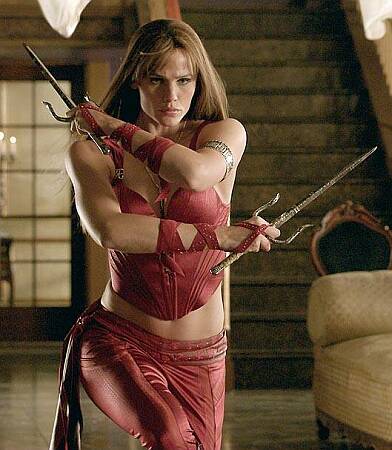 True story. A friend of ours has a job as an intern in Los Angeles, and coming round the corner at work one day, he literally bumped into Jennifer Garner. He immediately started apologising profusely (he’s an uber-nice kid, who wouldn’t say “Boo!” to a fly) but she wouldn’t have any of it and began cursing him out in the nastiest of ways. Garner finally stalked off, while he continued to apologise – just before vanishing, she turned round and gave him the finger. So now we know: Jennifer Garner = bitch.
True story. A friend of ours has a job as an intern in Los Angeles, and coming round the corner at work one day, he literally bumped into Jennifer Garner. He immediately started apologising profusely (he’s an uber-nice kid, who wouldn’t say “Boo!” to a fly) but she wouldn’t have any of it and began cursing him out in the nastiest of ways. Garner finally stalked off, while he continued to apologise – just before vanishing, she turned round and gave him the finger. So now we know: Jennifer Garner = bitch.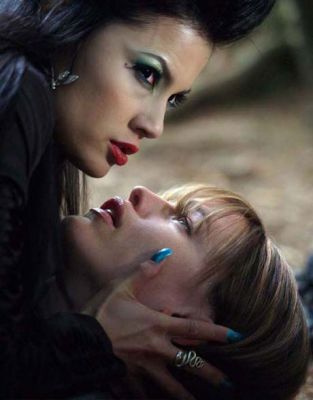 There is entertainment, mostly lurking in the background. A moment with impact sees Typhoid (Natassia Malthe), the girl with the poison touch, kiss Elektra; the pair fall to the ground surrounded by a shower of dying leaves. It feels almost like it could have been inspired by the work of Zhang Yimou (House of Flying Daggers), and is at least less obviously stolen than the “House of Flying Bed-Sheets” battle later on. It’s also interesting to see Mark Houghton as a chief bodyguard in the opening scene: he made his debut against Yukari Oshima in The Outlaw Brothers, back in 1987.
There is entertainment, mostly lurking in the background. A moment with impact sees Typhoid (Natassia Malthe), the girl with the poison touch, kiss Elektra; the pair fall to the ground surrounded by a shower of dying leaves. It feels almost like it could have been inspired by the work of Zhang Yimou (House of Flying Daggers), and is at least less obviously stolen than the “House of Flying Bed-Sheets” battle later on. It’s also interesting to see Mark Houghton as a chief bodyguard in the opening scene: he made his debut against Yukari Oshima in The Outlaw Brothers, back in 1987.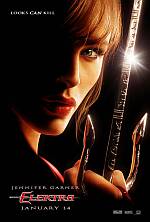
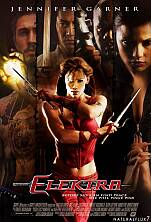
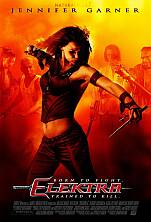
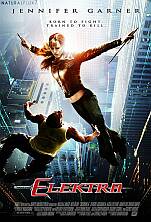
 In my collection, I have DVDs from six different American wrestling federations, plus others from Japan. This is, by far, the most tedious and badly-put together. There isn’t an aspect here that even reaches bearable: the wrestlers are almost without exception incompetent, the announcers are juvenile jerks, and the presentation is truly dreadful. Shot at WEW’s first two pay-per-views at Viking Hall, Philadelphia on February 22nd and April 6th, 2002, it is frankly a mystery how the company didn’t immediately fold. But rising from the remnants of GLOOW, it uses some of the same “talent” plus porn stars, and still seems to be offering its X-rated mix of sex and violence – though this DVD entirely lacks the nudity promised by the commentators, which has presumably been edited out. Really, all the naked female flesh in North America wouldn’t have helped this – the only thing that’s “extreme” is some bad language, and while I could be wrong, personally, there’s more to being extreme than a potty-mouth.
In my collection, I have DVDs from six different American wrestling federations, plus others from Japan. This is, by far, the most tedious and badly-put together. There isn’t an aspect here that even reaches bearable: the wrestlers are almost without exception incompetent, the announcers are juvenile jerks, and the presentation is truly dreadful. Shot at WEW’s first two pay-per-views at Viking Hall, Philadelphia on February 22nd and April 6th, 2002, it is frankly a mystery how the company didn’t immediately fold. But rising from the remnants of GLOOW, it uses some of the same “talent” plus porn stars, and still seems to be offering its X-rated mix of sex and violence – though this DVD entirely lacks the nudity promised by the commentators, which has presumably been edited out. Really, all the naked female flesh in North America wouldn’t have helped this – the only thing that’s “extreme” is some bad language, and while I could be wrong, personally, there’s more to being extreme than a potty-mouth.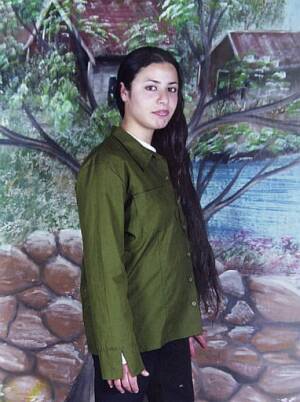

 D
D isney movies are not the usual place to find action heroines: their classic woman is a princess, who sits in a castle and waits for someone of appropriately-royal blood to come and rescue her from whatever evil fate (wicked stepmother, poisoned spinning wheel, etc.) that has befallen her.
isney movies are not the usual place to find action heroines: their classic woman is a princess, who sits in a castle and waits for someone of appropriately-royal blood to come and rescue her from whatever evil fate (wicked stepmother, poisoned spinning wheel, etc.) that has befallen her. There’s also no threat of execution when her deception is found out – Chinese culture may perhaps actually have a more tolerant approach to such things, though this is admittedly going only by the likes of Peking Opera, and a good chunk of Brigitte Lin’s career. And, of course, both the romantic angle and amusing sidekick were modern additions. This contrasts sharply with one version of the original, which has the Emperor hearing of Mulan’s exploits, and demanding she becomes his concubine. Mulan commits suicide in preference to this fate, an ending that, for some reason, didn’t make it into the Disney adaptation…
There’s also no threat of execution when her deception is found out – Chinese culture may perhaps actually have a more tolerant approach to such things, though this is admittedly going only by the likes of Peking Opera, and a good chunk of Brigitte Lin’s career. And, of course, both the romantic angle and amusing sidekick were modern additions. This contrasts sharply with one version of the original, which has the Emperor hearing of Mulan’s exploits, and demanding she becomes his concubine. Mulan commits suicide in preference to this fate, an ending that, for some reason, didn’t make it into the Disney adaptation… That’s a shame, because the original still has a great deal to offer. Unlike many Disney films, the songs don’t bring proceedings to a grinding halt and are notably absent from the second half of the film. Indeed, the transition is deliberately abrupt: a band of happy, singing warriors is stopped mid-verse when they come across a burnt-out village which the Huns have exterminated (right). It’s a simple, but highly effective moment, where silence says a lot more than any words. [At one point a song for Mulan about the tragedy of war was considered, but this was dropped, along with Mushu’s song, Keep ‘Em Guessing – both decisions which can only be applauded.]
That’s a shame, because the original still has a great deal to offer. Unlike many Disney films, the songs don’t bring proceedings to a grinding halt and are notably absent from the second half of the film. Indeed, the transition is deliberately abrupt: a band of happy, singing warriors is stopped mid-verse when they come across a burnt-out village which the Huns have exterminated (right). It’s a simple, but highly effective moment, where silence says a lot more than any words. [At one point a song for Mulan about the tragedy of war was considered, but this was dropped, along with Mushu’s song, Keep ‘Em Guessing – both decisions which can only be applauded.] However, personally, I’d say the value of having a clearly non-Caucasian heroine (a first for any Disney film) outweighs relatively minor quibbles about subtext. It may be the last great hand-drawn animated feature from the studio which invented the genre, and all but defined it for sixty years, so I have absolutely no hesitation in recommending this as an empowering and highly entertaining tale for children – of any age, but especially those too young to read subtitles. There aren’t many action heroine films our entire family loves, but Mulan is definitely high on the list.
However, personally, I’d say the value of having a clearly non-Caucasian heroine (a first for any Disney film) outweighs relatively minor quibbles about subtext. It may be the last great hand-drawn animated feature from the studio which invented the genre, and all but defined it for sixty years, so I have absolutely no hesitation in recommending this as an empowering and highly entertaining tale for children – of any age, but especially those too young to read subtitles. There aren’t many action heroine films our entire family loves, but Mulan is definitely high on the list.